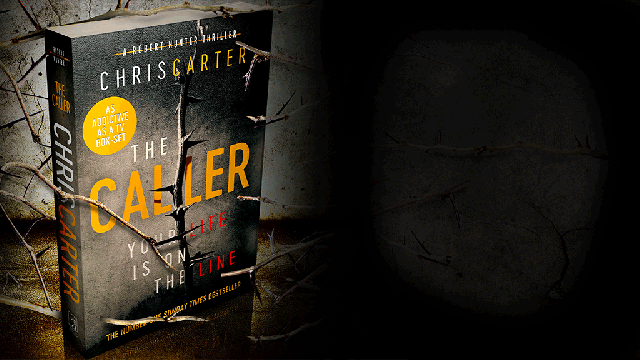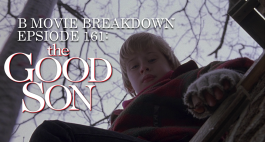As I sit here writing this review I am still bawling – just when I think I have it under control I see something in my house that triggers thoughts not only about Rose but also my own grandfather who was also POW and I start crying all over again. Hell, It’s not often I am hit so hard by a work of YA fiction, but I guess that’s why Rose Under Fire has been awarded so many literary honours. I don’t care who the intended audience is, Rose Under Fire is one heck of a read, and I would recommend it to anyone.
 Title: Rose Under Fire
Title: Rose Under Fire
Author: Elizabeth Wein
Publisher: Doubleday Canada
Publication Date: September 17, 2013
Original Publication Date: June 1, 2013
Genre: Fiction, Historical Fiction, WWII Fiction, YA Fiction
Themes: WWII, Concentration Camps, Prisoners of War, Ravensbruck, Nuremberg Trials
Features: General Bibliography, Suggested reading – accounts of Ravensbruck Survivors, Suggested reading – Internet Sources
Literary Awards: Schneider Family Book Award for Teen (2014), Josette Frank Award (2014), SCBWI Golden Kite Award Nominee for Fiction (2014), Milwaukee County Teen Book Award Nominee (2015), Carnegie Medal Nominee (2014)
My Rating: 4.5/ 5 SynopsisRose Justice is a young pilot with the Air Transport Auxiliary during the Second World War. On her way back from a semi-secret flight in the waning days of the war, Rose is captured by the Germans and ends up in Ravensbrück, the notorious Nazi women’s concentration camp. There, she meets an unforgettable group of women, including a once glamorous and celebrated French detective novelist whose Jewish husband and three young sons have been killed; a resilient young girl who was a human guinea pig for Nazi doctors trying to learn how to treat German war wounds; and a Nachthexen, or Night Witch, a female fighter pilot and military ace for the Soviet air force. These damaged women must bond together to help each other survive.
In this companion volume to the critically acclaimed novel Code Name Verity, Elizabeth Wein continues to explore themes of friendship and loyalty, right and wrong, and unwavering bravery in the face of indescribable evil.
My ReviewI loved this book. It took longer to read than I had planed on because I kept having to stop for a good ole’ cry, but it was absolutely worth it. I was expecting something lighter because I picked it out of the YA section at the bookshop, but I was absolutely delighted that it didn’t pull any punches regarding conditions and brutality despite it’s audience. I quickly became so wrapped up with the Ravensbruck Rabbits that I was rooting for the girls, enraged by the single-mindedness of their persecution, and actually cheered out loud every time I read that one of them made it out of the camp alive.
Okay, so we’ll get the elephant out of the corner right away. Yes, Wein includes poetry as part of this text, and girl guide camp songs, and Rose Justice is a plucky 18 year old female ATA pilot. Some people don’t like this, I made the mistake of reading the reviews first. But guess what? I don’t care. I think these things worked. Even if I’m not the greatest fan of Wein’s style of poetry, it helped move the plot, gave deeper insight into Rose’s character, and relayed some of the means these women adopted when it came to coping with their situation in a more palatable manner. And while some might not agree with the inclusion of the arts in the midst of atrocity, I feel that it was both believable and relevant given the Slovenian and Polish poets that are known to have passed through Ravensbruck and the fact that so much Holocaust art work and poetry has managed to survive.
I did think that it was an interesting choice to tell the story through the eyes of Rose, instead of Roza, as by comparison her story could be considered ‘light’. But at the same time it brings to light the issues of survivors guilt and PTSD. I thought that it was neat how the entire story was told through Rose’s notebook, which gave it the feel of a genuine memoir. I found it particularly interesting how Wein addressed head on the issues related with memory and retelling, the ways in which the most horrid of details are simplified, and the construct of memory. By presenting the whole story as Rose’s memory, readers are able to see where she struggled with details and how easy it is for minutiae to become obscured. It also highlights the challenges with testimony, and the last fear felt by survivors, which is a huge contributing factor as to why witnesses are reluctant to come forward.
I didn’t connect with Rose as much as some of the other characters, likely because there were elements of her that I felt belonged in a chick-lit heroine, but she was still a strong and believable lead – more so in her scenes as a survivor than in her depiction of camp life itself. However, there are undeniable echoes of Eileen Nearne, the real ‘Agent Rose’, who worked as an intelligence agent, was captured and sent to Ravensbruck, and who refused to do her prison work and later escaped with two French prisoners. Despite being an acknowledged work of fiction, the subtle nods to very real women like Eileen Nearne and Nina Jirsikova who drew comics of the camp added immensely to weight of this work.
It is clear that Wein does her research, and I love nothing more than when that research is not only given credit in the acknowledgements and the sourced shared with the readers. It was also incredibly touching that the names of the Rabbits were worked into Rose’s poetry, and pointedly included on the title pages of each chapter. This makes my librarian heart go pitter-patter, and my inner historian cheer as the dissemination of primary sources to a generation that often doesn’t know how to effectively assess the validity of news.
Would I recommend this book? Oh hell yes! I have already passed it on to my colleague to be included in her high school library as it wasn’t yet in their collection. Not only does it feature a whole cast of strong women, it’s historical accuracy is both awe inspiring and horrifying. I really appreciated the use of Ravensbruck as opposed to Auschwitz or Buchenwald, especially given the presence of medical experimentation and the world’s denial of the atrocities being committed there in early reports from escapees. Rose Under Fire is a tale of two strong Rosie’s, of undeniable strength and determination, of immeasurable horrors and true suffering, but most importantly it is an uplifting tale of unbreakable loyalty and genuine friendship in the most trying of circumstance. Elizabeth Wein has done it again with her companion to Code Name Verity, and I won’t hesitate to say that Rose Under Fire is an absolute must read.
Thank to Elizabeth Wein for making me cry so uncontrollably, for including the names of the ‘Rabbits’, and for continuing to TELL THE WORLD in a time when too many have chosen to forget.
Advertisements Share this:- More





